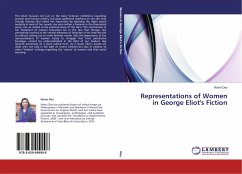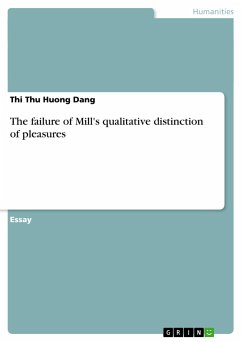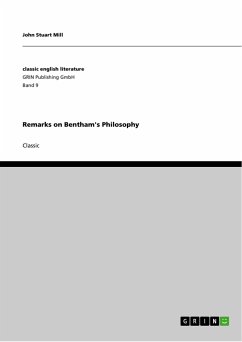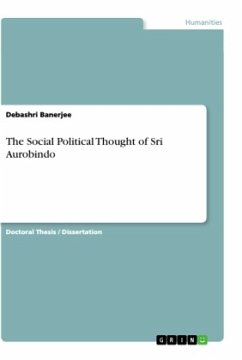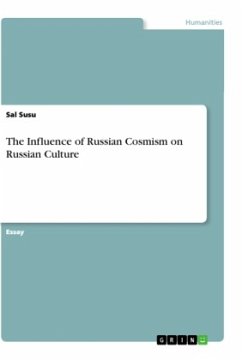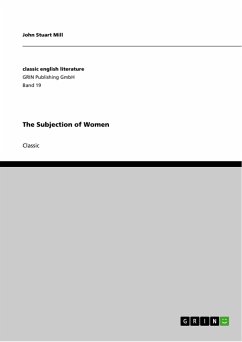
The Subjection of Women
Versandkostenfrei!
Versandfertig in 1-2 Wochen
47,95 €
inkl. MwSt.

PAYBACK Punkte
0 °P sammeln!
Classic from the year 2008 in the subject Philosophy - Philosophy of the 19th Century, , language: English, abstract: First published in 1869. Excerpt: The object of this Essay is to explain as clearly as I am able grounds of an opinion which I have held from the very earliest period when I had formed any opinions at all on social political matters, and which, instead of being weakened or modified, has been constantly growing stronger by the progress of reflection and the experience of life. That the principle which regulates the existing social relations between the two sexes - the legal subo...
Classic from the year 2008 in the subject Philosophy - Philosophy of the 19th Century, , language: English, abstract: First published in 1869. Excerpt: The object of this Essay is to explain as clearly as I am able grounds of an opinion which I have held from the very earliest period when I had formed any opinions at all on social political matters, and which, instead of being weakened or modified, has been constantly growing stronger by the progress of reflection and the experience of life. That the principle which regulates the existing social relations between the two sexes - the legal subordination of one sex to the other - is wrong itself, and now one of the chief hindrances to human improvement; and that it ought to be replaced by a principle of perfect equality, admitting no power or privilege on the one side, nor disability on the other.




